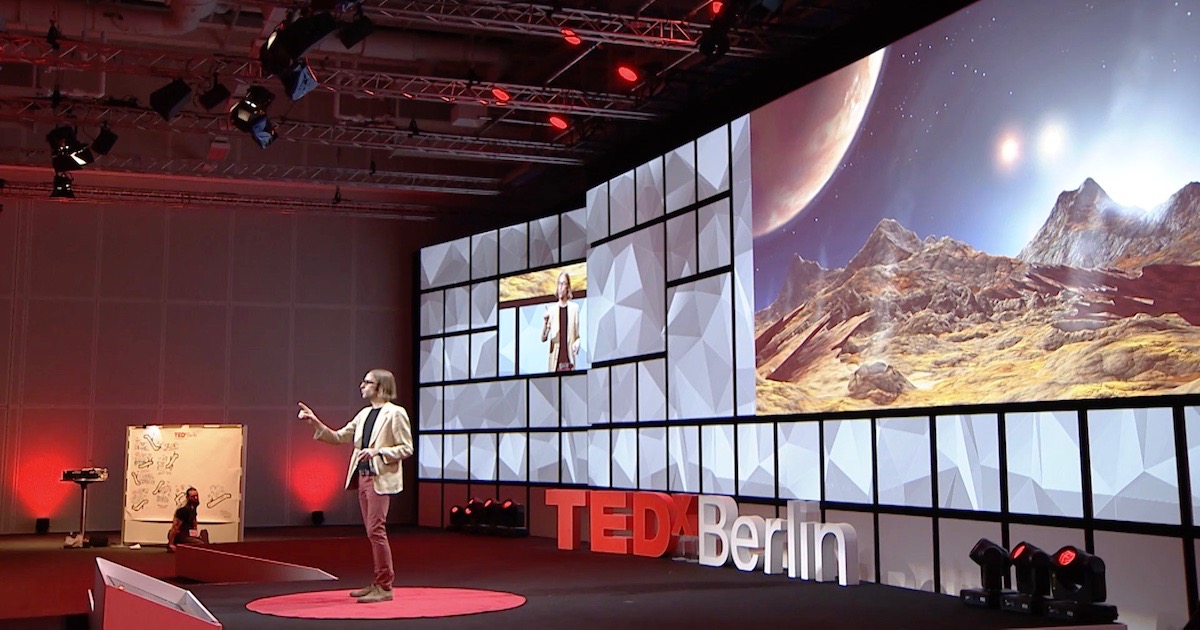 Evolution
Evolution
 Intelligent Design
Intelligent Design
 Physics, Earth & Space
Physics, Earth & Space
Physicist Considers a Possibility Forbidden to Biologists
Particle physicist James Beacham of CERN delivers, here, an inspiring TEDx talk. He describes excitement about the seeming discovery of a new subatomic particle — and the disappointment when the particle, a “bump” in data from the Large Hadron Collider, smoothed out and was revealed to be nothing at all. This was a letdown as a science story. You may recall hearing about it last August.
Beacham, however, is not let down. He is relaxed and accepting of the possibility that questions he asked and curiosities he felt as a child may go unanswered, even for his lifetime. With a significant gesture of the forefinger, he concludes:
Then that will be even more fascinating. We will be forced to think in completely new ways. We’ll have to go back to our assumptions and determine if there was a flaw somewhere. And we’ll need to encourage more people to join us in studying science since we need fresh eyes on centuries-old problems. I don’t have the answers and I’m still searching for them. But someone, maybe she’s in school right now, maybe she’s not even born yet, could eventually guide us to see physics in a completely new way and to point out that perhaps we’re just asking the wrong questions. Which would not be the end of physics, but a novel beginning.
Click on the picture above to see the whole video. Now imagine if a biologist, rather than a physicist, talked that way about his own discipline. That would be forbidden. His colleagues along with the media would denounce him as anti-science. After all, we know where considering the possibility that evolutionary biology could be upended leads, don’t we.
In fact it’s only biologists open to intelligent design, looking with “fresh eyes on centuries-old problems,” who admit to not having all the answers. Only ID considers the challenge of “seeing biology in a completely new way,” recognizing that “perhaps we’ve been asking the wrong questions.”
What an irony that in one of the major divisions of the scientific enterprise, admitting uncertainty and openness to new ideas — a stance so true to the heart of science — is likely to get you labeled a “science denier.”

